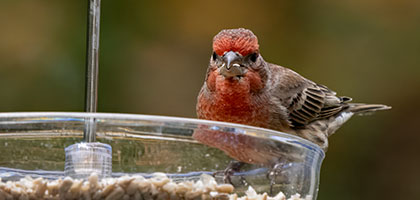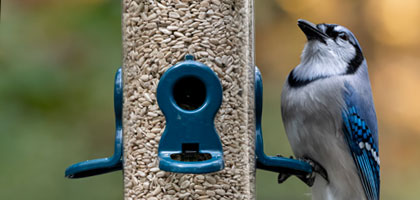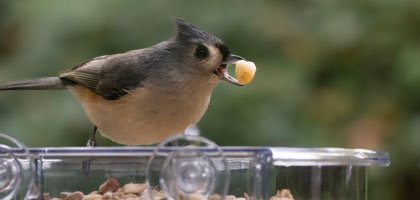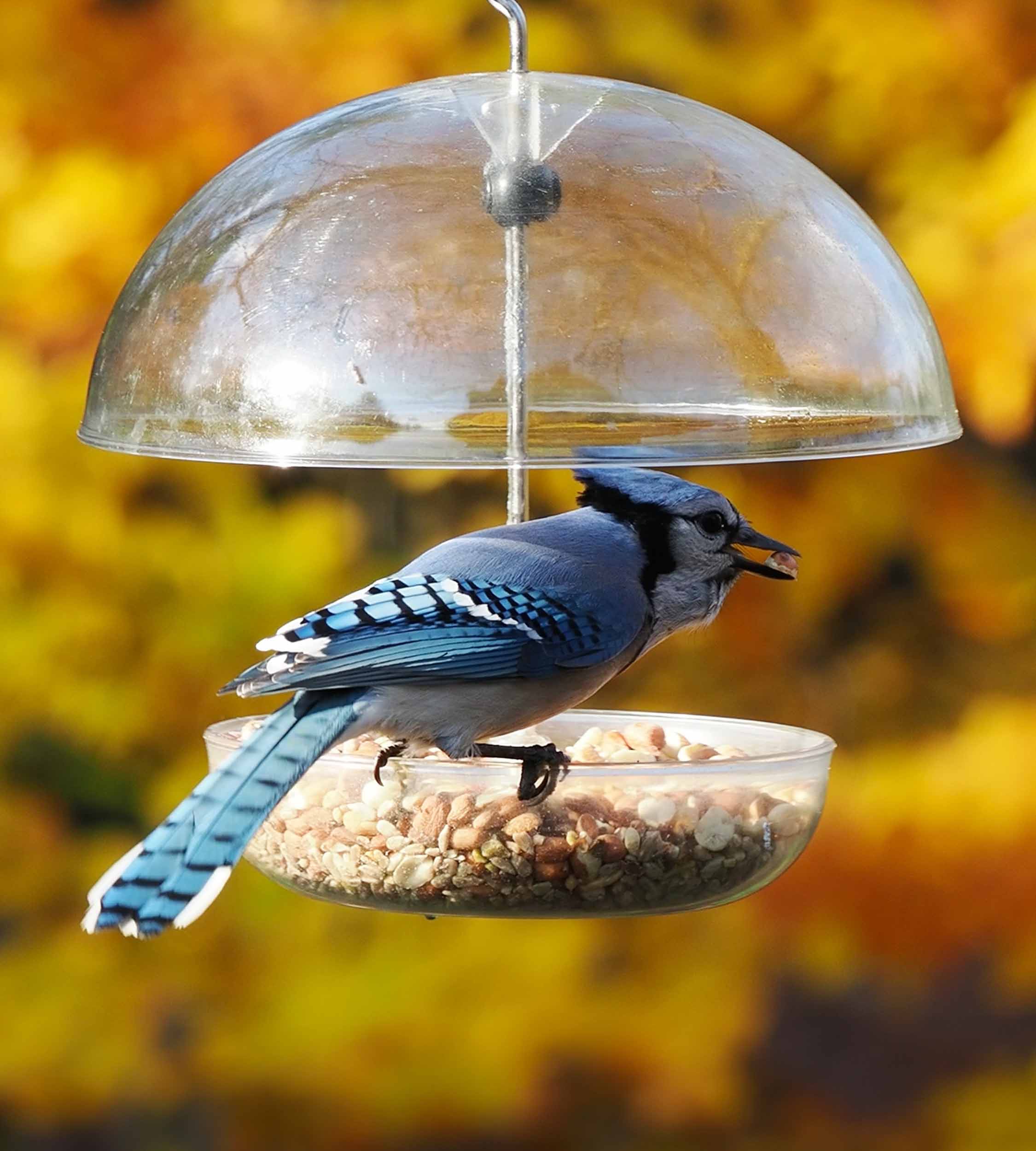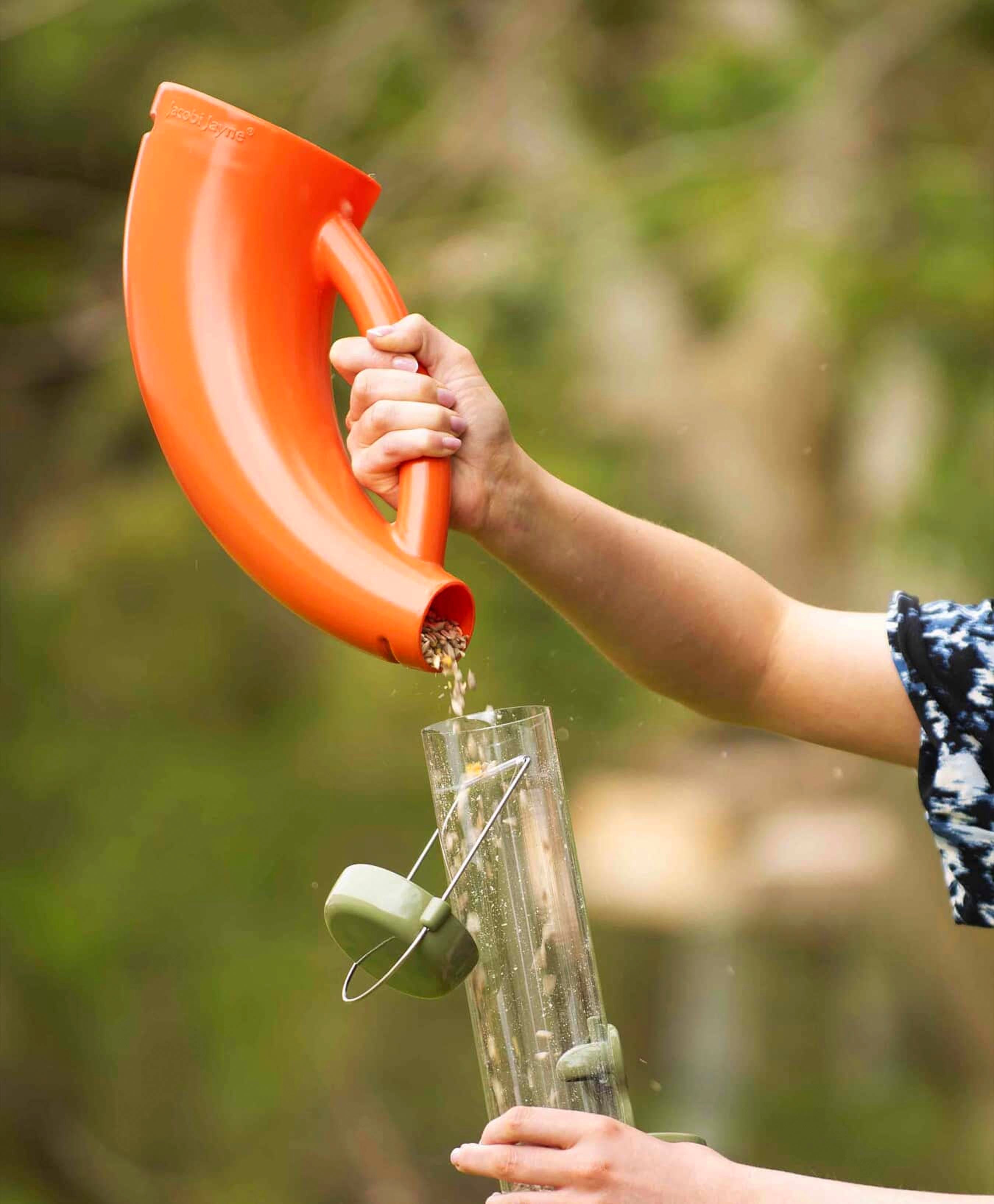Bird enthusiasts often face a unique challenge. Squirrels, with their agility and persistence, frequently raid bird feeders.
This common problem can be frustrating. After all, the bird food is intended for the birds, not squirrels.
But don’t worry, there are solutions. This guide will provide practical tips and strategies to keep squirrels away from your bird feeders.
From choosing the right feeder to adjusting your feeding schedule, we’ll explore various methods to ensure your bird food is reserved for your birds. Let’s dive in.
Understanding Squirrel Behavior
To outsmart squirrels, it’s important to understand them first. Squirrels are natural foragers, constantly on the hunt for food. Their agility and tenacity make them excellent climbers and jumpers.
These clever creatures can leap several feet and find paths that seem impossible. Knowing this helps us anticipate their moves.
Squirrels are also quick learners. Once they find a reliable food source, they remember it and return often. This behavior emphasizes the need for persistent and adaptive strategies to effectively stop them from eating bird food.
The Battle of the Bird Feeders: Squirrel-Proofing Strategies
Protecting bird food from squirrels requires strategic planning. Fortunately, there are several effective techniques to fortify your bird feeding setup against these persistent invaders.
One of the most straightforward strategies is using squirrel-proof feeders. These feeders come with features that prevent squirrels from accessing the food inside.
Here are some strategies to stop squirrels from eating bird food:
• Install squirrel-proof feeders with weight-activated perches.
• Use feeders made from chew-proof materials like metal.
• Employ baffles to deter climbing attempts.
• Maintain a clean feeding area to reduce squirrel attraction.
Choose the Right Feeder
Selecting the appropriate bird feeder is crucial in keeping squirrels away. Squirrel-proof feeders with weight-sensitive mechanisms are a great choice.
These feeders close access to the food when a squirrel’s weight is detected, preserving it for birds. Additionally, feeders made from robust materials like metal resist squirrel damage.
Consider feeders with caged designs that allow birds but block squirrels. Investing in the right feeder can save frustration and protect your bird food for its intended recipients.
Location
The placement of your bird feeders significantly influences squirrel access. Avoid hanging feeders near trees or structures that squirrels can use as launching pads.
Place feeders at a height and distance that squirrels find challenging to reach. Window feeders can also be effective if installed high enough to avoid squirrel interference.
Consider hanging feeders from a wire strung between two anchor points. This setup makes it difficult for squirrels to navigate and adds an extra layer of protection.
Baffle Them with Baffles
Baffles are excellent tools to deter squirrels from climbing to your feeders. These dome-shaped devices are installed above or below feeders and block access to climbing or jumping routes.
There are several types of baffles available. Pole-mounted baffles are effective against climbing squirrels, while hanging baffles work well above feeders.
Be sure to use a baffle with an appropriate size and shape for your setup. With the right baffles in place, you can significantly reduce squirrel access to your bird food.
Alternative Feeding Tactics
Sometimes a direct approach isn’t enough to stop squirrels from eating bird food. By adopting alternative feeding tactics, you can divert squirrel attention and protect your feeders.
Consider creating a separate feeding area just for squirrels. This can help keep them occupied and away from bird feeders. Another tactic is using feeders specifically designed to cater to different bird species, which are less accessible to squirrels.
Here are some alternative methods to consider:
• Establish a designated feeding spot for squirrels.
• Use specialized feeders for specific bird types.
• Rotate the type of bird food to confuse squirrels.
Distract with a Decoy
Adding a separate feeding station with easily accessible food can distract squirrels. By offering foods like nuts and seeds away from bird feeders, you may reduce their interference. This decoy allows birds to enjoy their meals without interruption, as squirrels focus on the provided alternative.
Adjust Your Feeding Schedule
Scheduling feeding times can also help minimize squirrel issues. Birds often feed early in the morning and late in the day. Squirrels may be less active during these hours, allowing birds a chance to eat undisturbed. By observing when squirrels are least present, you can smartly time your bird feedings.
The Role of Bird Food Choices
Choosing the right bird food is vital in discouraging squirrels from raiding your feeders. Some seeds and mixes are less appealing to these persistent critters. By understanding what squirrels prefer, you can tailor your bird feeding strategies accordingly.
Here are some bird food choices to consider:
• Nyjer seed: Not attractive to squirrels but loved by finches.
• Safflower seeds: Birds like cardinals enjoy them, while squirrels tend to leave them alone.
• Suet cakes and pellets: Can be managed in squirrel-resistant feeders.
Seed Selection: What Squirrels Dislike
Opt for seeds that squirrels tend to avoid. Nyjer seeds are a prime example, as they attract finches but not squirrels. Safflower seeds are another option, relished by many birds but often snubbed by squirrels. These choices help in reducing squirrel visits to your feeders.
Spicy Additives: A Fiery Deterrent
Adding spice to bird feed can effectively deter squirrels. Birds don’t react to capsaicin, the compound that makes peppers hot. Mixing a little cayenne pepper in bird seed can repel squirrels while birds feast happily. This fiery solution offers an easy, natural deterrent.
Physical Deterrents and Repellents
Physical deterrents are crucial in thwarting squirrels from bird feeders. These methods can be both simple and effective. By creating barriers, you reduce squirrels’ access to food intended for birds. Repellents can also play a significant role in keeping squirrels away.
Consider these deterrents:
• Motion-activated sprinklers: Surprise and repel squirrels from feeder areas.
• Reflective objects: Startle squirrels by reflecting light and creating movement.
• Electronic repellents: Emit sounds that deter squirrels without disturbing birds.
Using Motion-Activated Devices
Motion-activated devices, like sprinklers, serve as excellent deterrents. These devices startle squirrels the moment they approach. Such unexpected water jets can condition squirrels to steer clear of your bird feeders.
Natural Barriers and Plant Solutions
Creating natural barriers can also deter squirrels. Thorny bushes or prickly plants around feeders work well. These plants act as obstacles, making it difficult for squirrels to reach bird food, maintaining a natural yet effective defense.
Community Efforts and Ethical Considerations
Community cooperation can enhance bird feeding success. Educating neighbors about squirrel-proofing is vital. Ethical wildlife management ensures squirrels and birds coexist peacefully. Sharing tips and strategies within local communities fosters a supportive environment. Always adhere to local guidelines when implementing wildlife deterrents to maintain ecological balance.
Conclusion: Coexisting with Squirrels
Finding harmony with squirrels while feeding birds involves creativity and patience. By implementing effective deterrents, you can enjoy birdwatching without feeding squirrels unintentionally. Balance is key; the goal is to protect bird food while maintaining a respectful relationship with all backyard wildlife.
